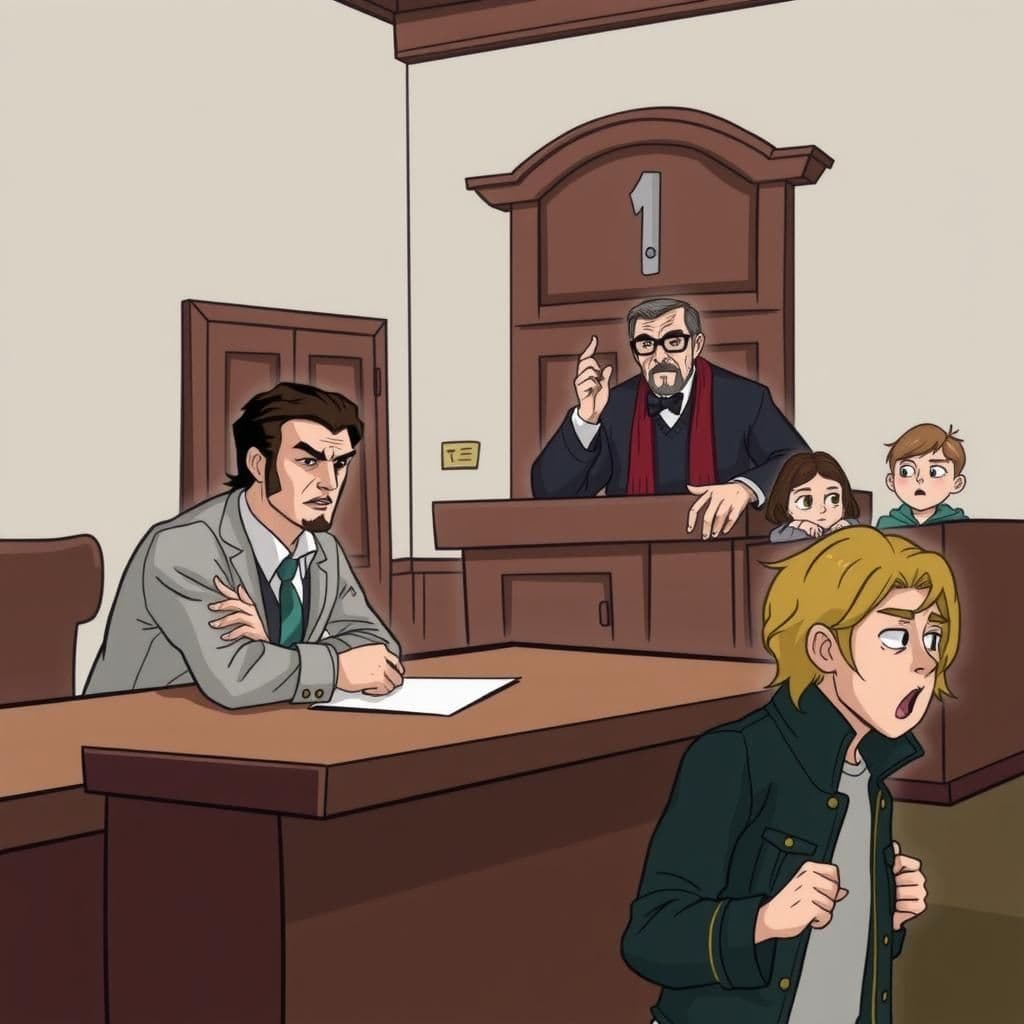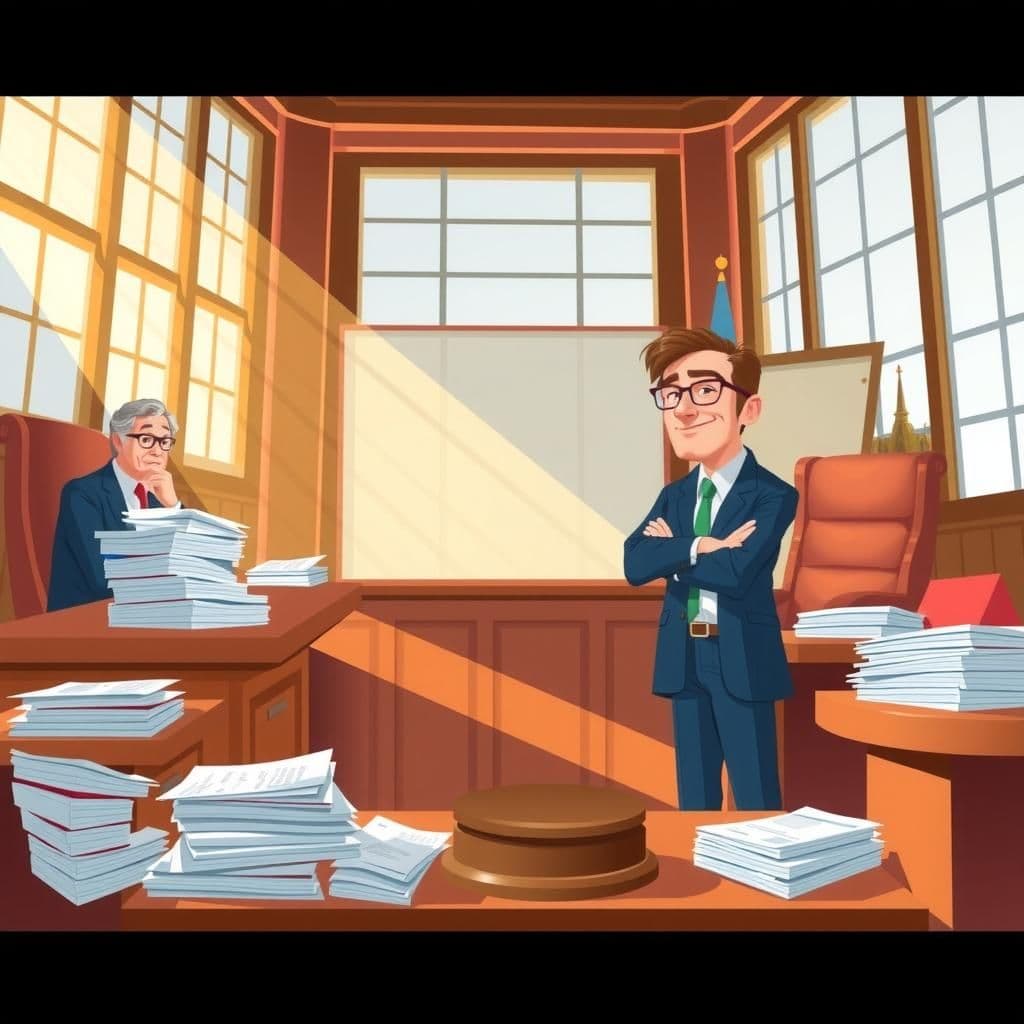The Judge and the Rash Act
In this humorous story with a moral, a discontented judge, desperate for recognition and contemplating suicide due to his lackluster career, encounters a ghostly figure known as the "Rash Act." When the figure offers to be committed, the judge declines, insisting that it would be improper to act on such a whim while not serving as a committing magistrate. This quick moral story highlights the absurdity of rigid adherence to duty, making it a fitting addition to short story collections with moral lessons for young readers.

Reveal Moral
"The story highlights the dangers of inaction and the consequences of succumbing to despair, illustrating that one should not avoid making difficult decisions or taking responsibility."
You May Also Like

The Tried Assassin
In "The Tried Assassin," a courtroom drama unfolds as an assassin stands trial in a New England court. His counsel argues for dismissal based on a previous acquittal in California, invoking the principle of "once in jeopardy." However, the judge denies the motion, stating that an assassin is not considered to be in jeopardy when tried in California, allowing the trial to proceed—a reflection of the complexities found in popular moral stories and animal stories with moral lessons.

A Hasty Settlement
In "A Hasty Settlement," an attorney proposes to reopen a concluded estate case after realizing there may be remaining assets, prompting the judge to reconsider the initial valuation. This concise moral story highlights the importance of diligence and the potential for overlooked opportunities, reminding readers that lessons learned from stories can inspire a deeper understanding of justice and fairness in seemingly settled matters.

The Foolish Woman
In "The Foolish Woman," a married woman, believing she can alter her lover's fate, kills him to prevent his departure for a new life in Chicago, viewing it as a way to stop his wickedness. However, a passing policeman and a nearby man of God emphasize the futility of her violent act, illustrating a poignant lesson that one cannot control another's choices through force. This captivating moral story serves as a reminder that true change comes from within, making it a thought-provoking addition to the realm of creative moral stories and short stories with moral for adults.